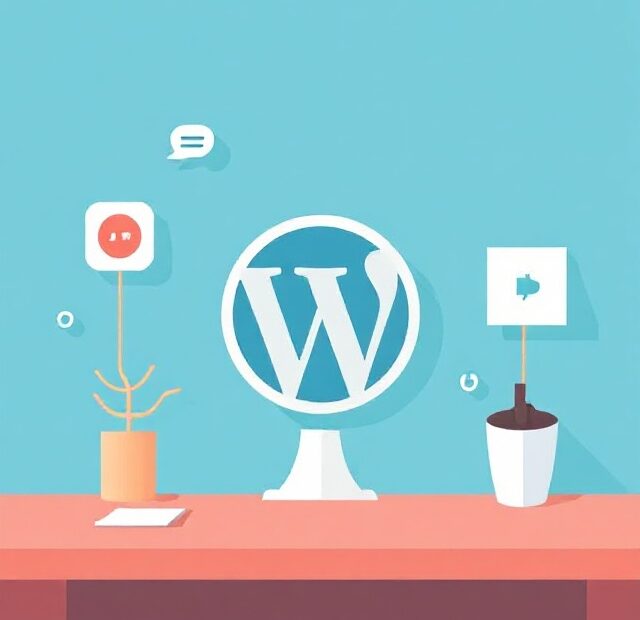WordPress powers millions of websites worldwide, thanks to its flexibility and ease of use. One of its greatest strengths lies in plugins—small software add-ons that expand functionality. While thousands of free and premium plugins exist, not every business finds the exact features they need. That’s where custom WordPress plugin development explained becomes vital.
In this article, we’ll break down what custom plugin development means, why it’s important, and how businesses can benefit from investing in tailored solutions.
What Is Custom WordPress Plugin Development?
Plugins are like apps for your WordPress website. They add extra functionality—anything from SEO optimization to contact forms. However, pre-built plugins may not always align with unique requirements.
Custom WordPress plugin development is the process of building a plugin specifically designed for your website’s needs. Instead of relying on generic tools, developers create a tailored solution that integrates seamlessly with your existing setup.
For example:
-
A restaurant might need a unique table reservation system.
-
An online school may require a custom student progress tracker.
-
An eCommerce store might want a personalized discount system.
Custom plugins ensure your website works exactly the way you want.
Why Choose a Custom Plugin Instead of Pre-Built Ones?
While ready-made plugins are quick to install, they come with limitations:
-
Unnecessary Features
Many plugins include extra features you don’t need, which can slow down your site. -
Compatibility Issues
Plugins may not always work well with your theme or other plugins. -
Lack of Support
Free plugins sometimes lack regular updates or customer support. -
Security Risks
Poorly coded plugins can expose your website to vulnerabilities.
By contrast, a custom-built plugin is:
-
Lightweight (no unnecessary code).
-
Compatible with your website.
-
Secure and regularly updated.
-
Designed to achieve specific goals.
This is why businesses often turn to custom WordPress plugin development explained for long-term success.
The Benefits of Custom Plugin Development
-
Tailored Functionality
You get exactly what your business needs—nothing more, nothing less. -
Scalability
Custom plugins grow with your business. As you scale, new features can be added easily. -
Performance Optimization
Since there’s no bloated code, your site runs faster. -
Brand Consistency
Custom plugins can match your brand style, tone, and user experience. -
Competitive Advantage
Unique features help you stand out from competitors using standard plugins.
The Process of Custom WordPress Plugin Development Explained
Developing a custom plugin involves several steps. Here’s a simplified breakdown:
-
Requirement Analysis
First, developers identify your goals and the exact functionality you need. -
Planning & Design
The plugin structure is designed to integrate smoothly with your WordPress setup. -
Coding & Development
Developers use PHP, JavaScript, and WordPress APIs to build the plugin. -
Testing
The plugin undergoes thorough testing to ensure it works correctly and securely. -
Deployment
Once approved, the plugin is installed on your site. -
Ongoing Maintenance
Regular updates ensure security and compatibility with WordPress updates.
Best Practices for Custom Plugin Development
-
Keep It Lightweight – Avoid unnecessary code that slows down performance.
-
Follow WordPress Standards – Stick to WordPress coding practices for better stability.
-
Ensure Security – Protect against common vulnerabilities like SQL injection.
-
Documentation – Maintain clear documentation for future updates or developers.
-
Scalability in Mind – Build with flexibility for future growth.
Following these practices ensures that your plugin remains reliable and efficient.
How Much Does Custom Plugin Development Cost?
The cost depends on complexity. A simple plugin may cost a few hundred dollars, while advanced plugins with multiple features can cost thousands. Factors influencing cost include:
-
Development time.
-
Features required.
-
Ongoing maintenance and support.
Although custom plugins may seem like an investment, they often save money in the long run by avoiding recurring license fees and boosting site performance.
Who Should Consider a Custom Plugin?
Custom plugins are ideal for:
-
eCommerce Stores needing advanced inventory, checkout, or pricing features.
-
Educational Platforms requiring student tracking or learning modules.
-
Service Businesses wanting booking, scheduling, or client management systems.
-
Startups aiming to create unique tools to stand out in the market.
If you’re hitting limitations with existing plugins, it’s time to explore custom solutions.
Final Thoughts
Plugins are the backbone of WordPress functionality, but not every business can rely on one-size-fits-all solutions. That’s why understanding custom WordPress plugin development explained is so important.
With a custom plugin, you gain control, flexibility, and security tailored specifically to your needs. Whether it’s boosting performance, enhancing customer experience, or adding unique features, custom development can take your website to the next level.
If you want your WordPress site to truly reflect your business goals, investing in custom plugin development might be the smartest step forward.
Also, you can learn more about Plugin Development Trends here.
